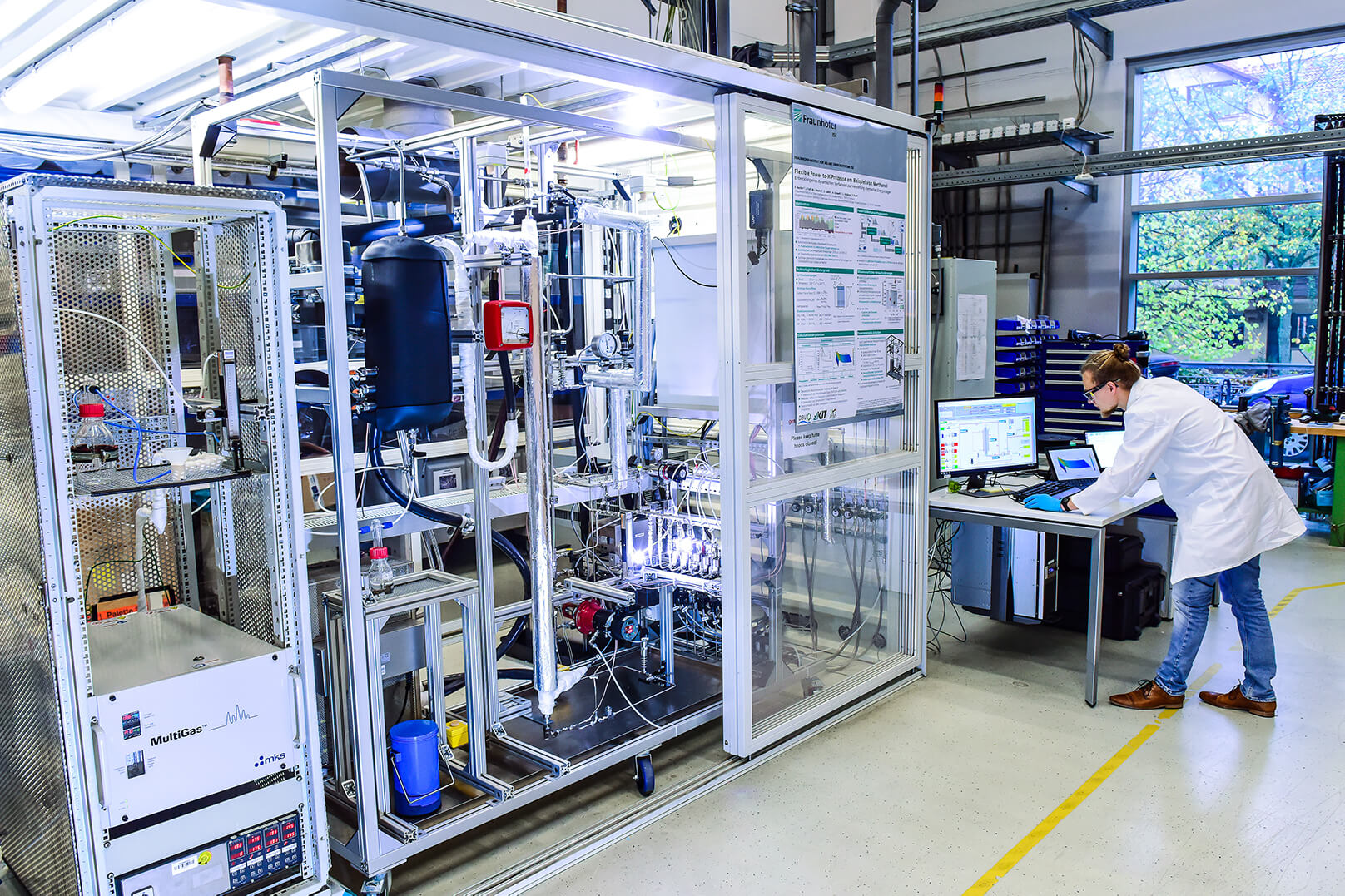| Duration: | 04/2019 - 05/2024 |
| Contracting Authority/ Sponsors: |
Bundesministerium für Bildung und Forschung (BMBF) |
| Project Partners: | 37 Projektpartner: Industrieunternehmen, Großforschungseinrichtungen, Universitäten und Fraunhofer-Institute. Mehr Info |
| Website: | http://namosyn.de/ |
| Project Focus: |
NAMOSYN – Sustainable Mobility with Synthetic Fuels


The transportation sector is responsible for a considerable share of CO2 emissions worldwide, which makes it imperative for this sector to significantly reduce emissions in the future. “NAMOSYN” stands for “Nachhaltige Mobilität durch synthetische Kraftstoffe” – or “Sustainable mobility through synthetic fuels”. These fuels can be used in applications where electrification is particularly difficult, e.g. in ships or large trucks. The goal of the project is to develop sustainable fuel synthesis processes for diesel and gasoline engines and test them under real conditions in combustion engines. Previous tests at Fraunhofer ISE have determined that a fuel with a very small carbon footprint can be produced via a Power-to-Liquid (PtL) pathway if the hydrogen generated from water electrolysis is primarily produced from renewable energy and is used along with carbon dioxide to yield oxymethylene ethers (OME3-5), for example.
Thanks to their positive combustion properties, OMEs not only have a smaller carbon footprint, they also have the potential to significantly reduce local emissions such as nitrogen oxides and soot. This effect is due to their specific chemical structure, which, in contrast to fossil fuels, does not contain any direct carbon-carbon bonds. OMEs are non-toxic, have a high cetane number – an indicator of highly efficient operation in diesel engines – and are compatible with existing infrastructure. In light of these optimal fuel properties, Fraunhofer ISE has already been working on energy-efficient and cost-effective OME synthesis processes for several years.
As part of the NAMOSYN project’s research cluster 1B (FC), Fraunhofer ISE is working on developing processes for producing up to multiple millions of tons of OMEs per year. Meanwhile, research cluster 1A is focused on the use and compatibility of these OMEs with a combustion engine, both in a laboratory setting and in the real world. Research cluster 3 involves an overarching assessment of these fuels, including ecological (life cycle assessment, LCA) and social aspects and an information exchange with the accompanying research project BENIVER.
Achieving high efficiency hinges on carrying over the individual steps of OME synthesis to an integrated process – beginning with the reactants of “green” methanol or syngas made of biomass all the way through to the standard-compliant fuel. Fraunhofer ISE is leading the “Assessment and system analysis” work package, which focuses on integrating the sub-processes developed by project partners into a complete process chain by first comparing the energy efficiency and economic efficiency of these sub-processes and selecting the most promising one.
One of Fraunhofer ISE’s central goals in this project is to develop integrated, standardized process simulations of these process chains. As part of the groundwork at Fraunhofer ISE, a simulation platform was constructed, which will now be used for this project. This simulation platform contains validated models for complex processes and factors in findings from experimental tests which were conducted prior to the NAMOSYN project, allowing for standardized and detailed process simulation.
The research within "NAMOSYN" is now almost finished. Here you can read the results in the project publication: „Techno-economic assessment and carbon footprint of processes for the large-scale production of oxymethylene dimethyl ethers from carbon dioxide and hydrogen” https://pubs.rsc.org/en/content/articlelanding/2022/se/d1se01270c